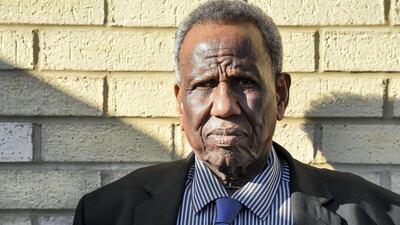A security officer who was racially abused while working at Qatar’s embassy in Britain has been awarded almost £190,000 in compensation by a London employment tribunal.
Mahamoud Ahmed, 79, was called a “black slave” and a “donkey” before being assaulted by the medical attaché at the diplomatic mission during an incident in 2013 and was subsequently sacked, the tribunal heard.
The tribunal ruled in March that Mr Ahmed, who had worked at the embassy in Mayfair on and off for almost 20 years, had been racially harassed and dismissed because of his race.
At a remedy hearing on Wednesday, Judge Joanna Wade awarded Mr Ahmed a sum of £167,021.02 (Dh774,817.07) for loss of earnings, a personal injury claim, cost of medical treatment, aggravated damages and injury to feelings as well as £20,000 (Dh92,780) in costs, the absolute maximum an employment tribunal can award.
Mr Ahmed was initially awarded £8,000 (Dh37,112) at the tribunal's March proceedings, which the respondents, Embassy of the State of Qatar, withdrew from.
However, a letter from Mr Ahmed’s solicitor seeking the payment of the £8,000 award was not even acknowledged by the embassy, the tribunal was told on Wednesday.
Representing Mr Ahmed, Edward Kemp told the tribunal: “The embassy has done absolutely nothing.”
He added that the diplomat who abused Mr Ahmed, Abdullah Ali Al Ansari, appeared to still be employed by the embassy.
Judge Wade acknowledged that trying to get the full compensation would be “extremely difficult”.
“We hope that this will not be a hollow victory for you,” she said, addressing Mr Ahmed directly. “But we have done all we can.”
The embassy had for years been able to use its diplomatic immunity to avoid being brought to tribunal over the complaint.
Mr Ahmed was only able to have his case heard after two landmark judgments in 2015 and 2017, the second of which ruled that claiming diplomatic immunity from employment laws was incompatible with the European Convention on Human Rights.
He is still unable to claim for unfair dismissal and would need UK law to change for such a case to be heard.
Mr Ahmed’s solicitor Rachel Lester said it was not clear whether the embassy would pay the compensation.
“For Mr Ahmed this may be the beginning of his battle because the next step will obviously be enforcement and getting recovery of the substantial compensation awarded. But this is certainly a start,” Ms Lester said.
The Qatari embassy did not respond to requests for comment from The National on Wednesday.


